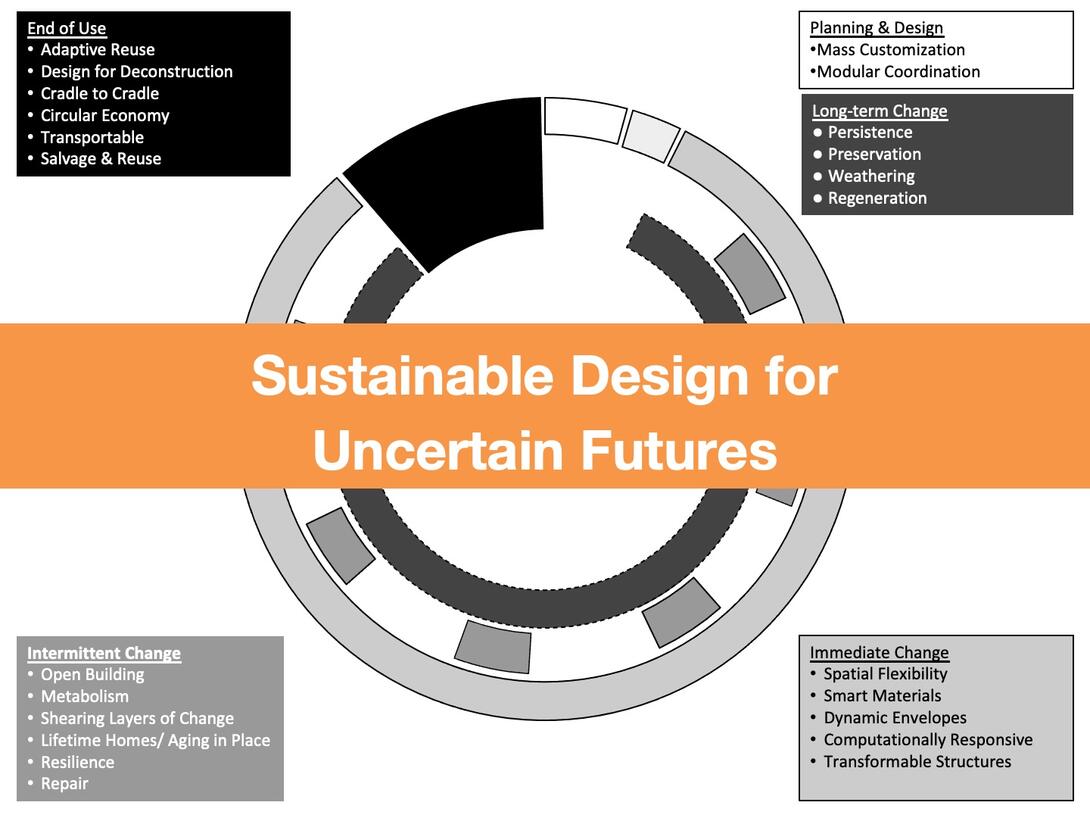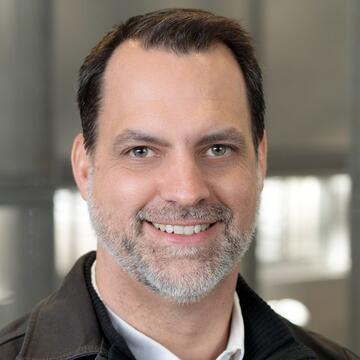PJ Dick Innovation Fund Project Grant: Sustainable Design for Uncertain Futures Book and Website

Sustainable Design for Uncertain Futures Book Production and Website Enhancement Support
Joshua D. Lee, Assistant Professor, Carnegie Mellon Architecture
In collaboration with: Joseph Murray, Ph.D. Candidate in Architecture–Engineering–Construction Management, Carnegie Mellon Architecture
Lifecycle change processes in most buildings are very costly and characterized by material waste, energy inefficiencies and lost productive potential. All buildings change and when they do the full costs are often externalized to communities in many ways: embodied skill and material energy is lost when buildings are demolished; toxic materials are released into the environment and present hazards to workers during the renovation process; and dramatic alternating cycles of disinvestment and reinvestment are often traumatic for communities and compound income inequalities. The effects are exacerbating the problems of climate change and social injustice. In the project lead’s course, “Protean Systems: Sustainable Design for Uncertain Futures,” students are introduced to a wide range of time-based strategies through key readings and case studies. To extend this work beyond the classroom, additional support is requested to complete an in-progress book and an engaging website with edited video excerpts and interactive diagrams. The book presents an introduction to 16 time-based strategies with case studies and a series of dialogues among an exceptional assemblage of theorists aligned with each strategy. The website will serve as both a promotional gateway to the book and present the information in an accessible format through video excerpts of the dialogues and interactive “explorable explanations.” The aim of this book and website is to provide academics and practitioners with strategies that can be used in combination throughout the building project lifecycle to help designers align their work with the appropriate forces of change.
Image: Sustainable Design for Uncertain Futures. Credit: Joshua D. Lee
About the Project Lead
Associate Teaching Professor & AECM Track Chair
-
Project grants support projects that address the school’s three pedagogical challenges: climate change, social justice and artificial intelligence. The grants support the diverse work of Carnegie Mellon Architecture’s faculty in creative practice, professional practice, artistic practice, funded research, participatory design, design build, curation, scholarship, critical and digital humanities, and more. The intention of the PJ Dick Project Grants Program is to provide support for a variety of projects including faculty seed funds to start a project with the aim of getting external support, to continue work on a project that may not have the option for sponsored research, and to support organizing symposia and conferences at the school.
-
The Faculty Grants Program will award a total of $400,000 over four years and is open to all full time faculty at the school. The 2024 proposals were evaluated by a committee comprised of school head Omar Khan; associate heads Joshua Bard, Mary-Lou Arscott and Kai Gutschow; Erica Cochran Hameen, Director of Diversity, Equity and Inclusion; Theodossis Issaias, Special Faculty; Jenn Joy Wilson, Assistant Dean for Research Development and Sponsored Projects; and Aaron Martin, Associate Director, Institutional Partnerships, College of Fine Arts.
The Faculty Grants Program, established in 2023 by PJ Dick Trumbull Lindy Group, supports faculty research and teaching innovations that address the school’s three pedagogical challenges: climate change, social justice and artificial intelligence. The proposals were assessed on their impact in furthering a faculty member’s research and teaching, their contribution to interrogating the school’s challenges, and their viability to garner further research support, make an impact on the discipline and expand the pedagogy of the school.
